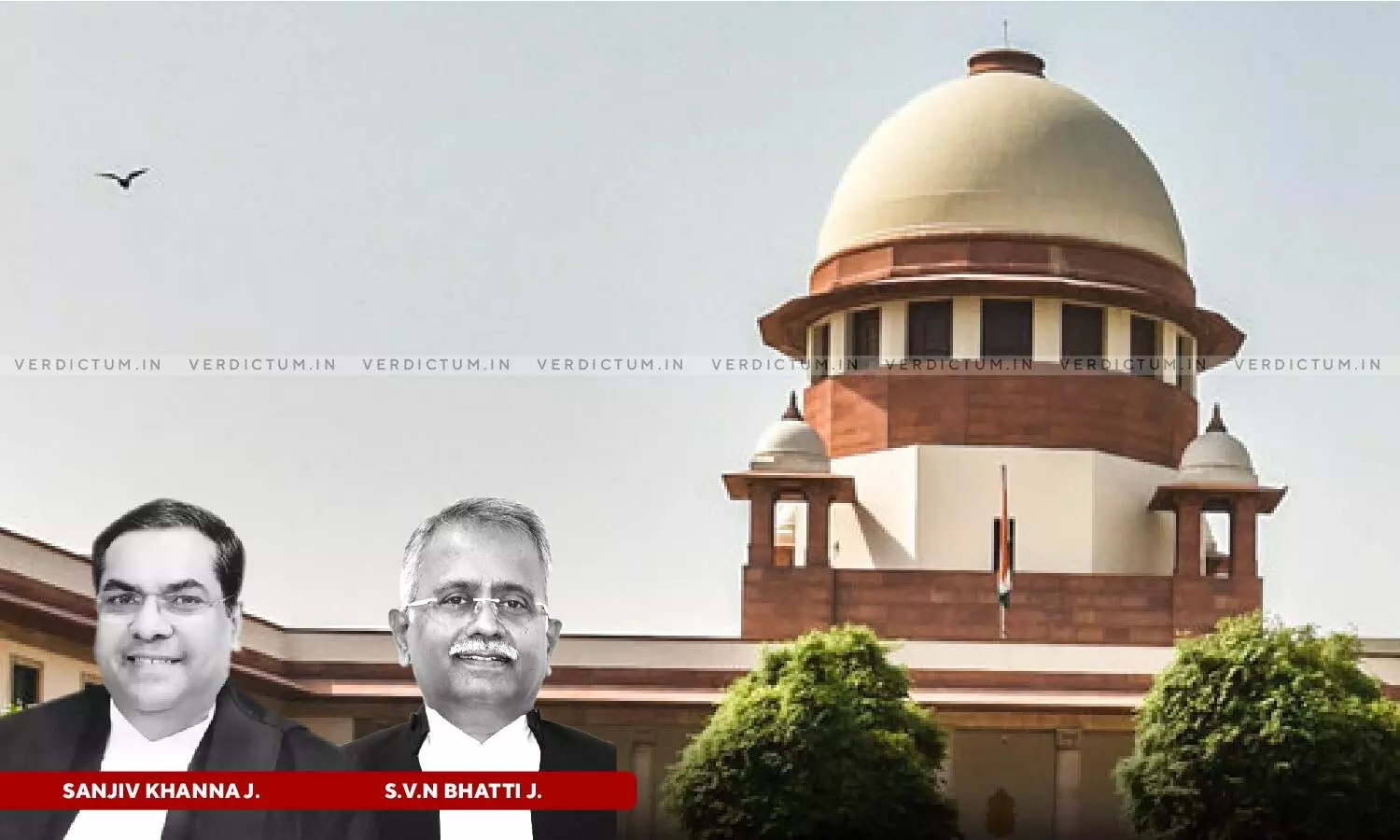
Directions Issued In Writ Jurisdiction Should Not Become A Substitute To Executive Discretion Of Authorities: Supreme Court
 |
|The Supreme Court observed that the directions issued in writ jurisdiction should not become a substitute to executive discretion of the authorities.
The Court was dealing with an appeal filed by the Jharkhand State and Director of Mines and Geology, Ranchi against the judgment of the Jharkhand High Court.
The two-Judge Bench of Justice Sanjiv Khanna and Justice S.V.N. Bhatti said: Through our judicial view, the Court avoids exercising the very discretion vested with the jurisdictional authority under the Rules. The directions issued in the writ jurisdiction ought not to become a substitute to the executive discretion of the authorities.
The Bench added that the appellants were right in annulling the tender process initiated and deciding to auction the blocks in accordance with the Mineral (Auction) Rules, 2015.
Senior Advocate Arunab Chowdhury appeared on behalf of the appellants while Advocate Dhruv Mehta appeared on behalf of the respondents.
Facts of the Case -
The respondent company had filed a writ petition praying for an appropriate writ directing the State (first appellant) to proceed with the second round of auction as per Sub-Rules (10) to (12) of Rule 9 of the Mineral (Auction) Rules, 2015, as amended by Mineral (Auction) Amendment Rules, 2017 and for a further direction restraining the appellants from taking any action to defeat the rights of the respondent in the subject tender process. The said writ petition was dismissed by holding that the respondent’s technical bid even if found to be compliant, the bid cannot be taken to the next stage of the tender process.
The Respondent, hence, filed a plea which was allowed. The impugned judgment, among other reasons, held that the appellants were bound by the statutory obligation under the second proviso to Sub-Rule (12) of Rule 9 of M(A) Rules and the bid of the respondent was considered further. The Division Bench held that the decision-making process of the appellants to annul the tender and the auction notice was vitiated. Hence, the civil appeal was preferred by the State and the Director of Mines and Geology.
The Supreme Court in the above context of the matter noted, “The State Government is assumed to know the commercial value of the natural resources tendered/auctioned, along with the commercial propensity to earn in a future point of time. Therefore, the statutory rules envisage the method of the bid cum e-auction process by shortlisting not only the technically qualified bidders, but also particular bids satisfying the eligibility criteria even for allowing their participation in e-auction. There are several inbuilt safeguards in the subject Rules to ensure transparency and objectivity in the bid process.”
The Court further observed that Sub-Rule (12) of Rule 9, provides for the course of actions the State Government must follow in the event of a decision to conduct the second attempt of auction viz., the terms and conditions in the second attempt shall remain same as in the first annulled attempt of auction.
“The first proviso stipulates that the initial price offer of the technically qualified bidders, if any, in the annulled first attempt, becomes the reserve price for auction in the second attempt. … The second proviso enables the State to continue the second round of second attempt of auction even if the number of qualified bidders is less than three”, said the Court.
The Court also noted that the appellants are governed by the MMDR Act and M(A) Rules, for identifying, auctioning the blocks, and granting mining lease rights to successful participants and hence, the first and foremost obligation on the appellants is to act in trust and advance the public interest while granting mining leases.
“The argument of the Respondent begs the very question whether the first annulled attempt ought to be reckoned as a valid first attempt, assuring so, whether the Appellants could be compelled to evaluate the single bid without initial price offer/reserve price or without competition/auction among technically qualified bidders. … The Court insists upon strict adherence to statutory rules. Through our judicial view, the Court avoids exercising the very discretion vested with the jurisdictional authority under the Rules. The directions issued in the writ jurisdiction ought not to become a substitute to the executive discretion of the authorities”, said the Court.
The Court concluded by saying that once the Notice Inviting Tender (NIT) is held as a non-responsive tender, then the Sub-Rule (12) of Rule 9 of the M(A) Rules is not attracted, and the appellants are not compelled to evaluate the sole price bid of the respondent in terms thereof.
Accordingly, the Apex Court allowed the appeal and set aside the judgment of the High Court.
Cause Title- State of Jharkhand, through its Secretary, (Mines & Geology) and Another v. SOCIEDADE DE FOMENTO INDUSTRIAL PVT. LTD. and Others (Neutral Citation: 2023 INSC 1010)